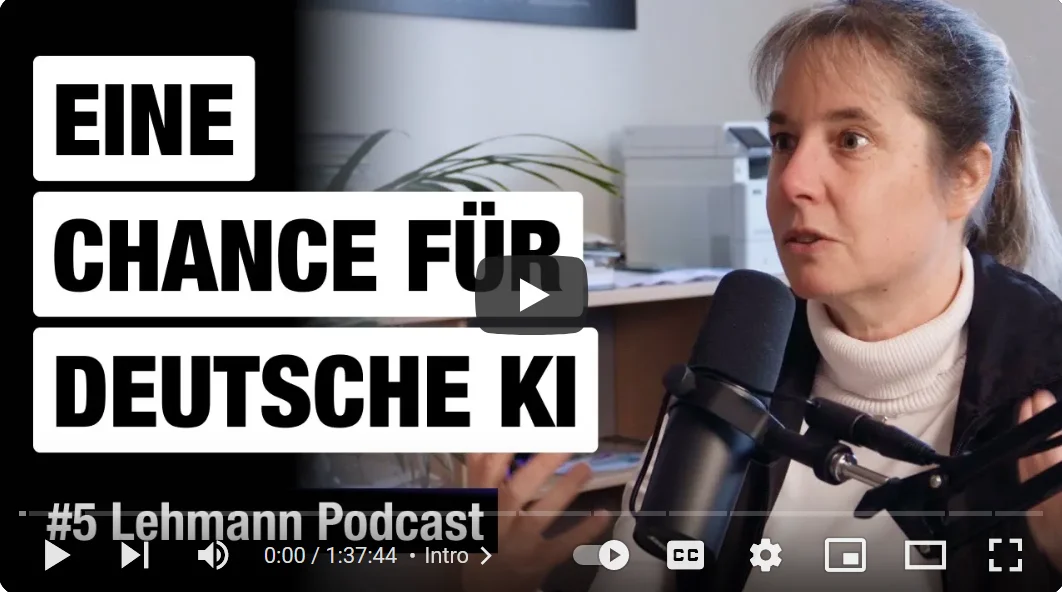
Please take a look at the excellent interview with our LMU-director Gitta Kutyniok (in German), in which she speaks about Neural Networks, Mathematics, Explainability in AI, the EU AI Act, analog hardware and more.

Please take a look at the excellent interview with our LMU-director Gitta Kutyniok (in German), in which she speaks about Neural Networks, Mathematics, Explainability in AI, the EU AI Act, analog hardware and more.
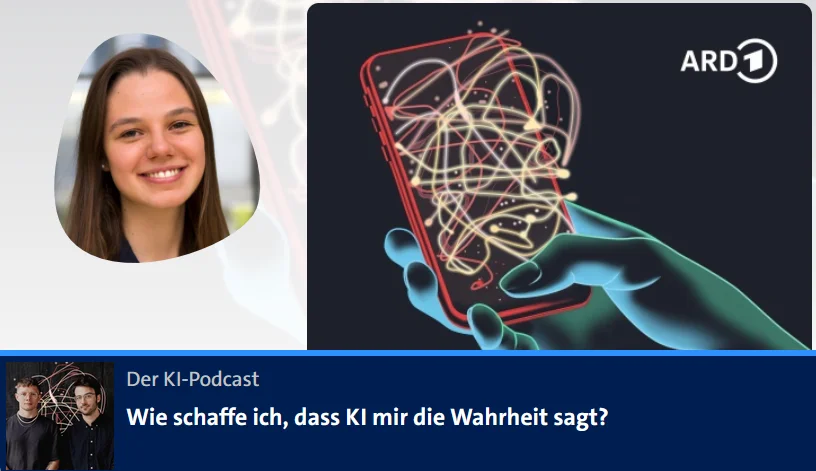
In the ARD (Arbeitsgemeinschaft der öffentlich-rechtlichen Rundfunkanstalten der Bundesrepublik Deutschland) AI podcast, relAI PhD student Sarah Ball shares her view on AI safety and reliability of large language models. Please check it out!
Links (podcast is in German):
https://www.ardaudiothek.de/sendung/der-ki-podcast/94632864/

We are delighted to welcome five exceptional fellows to relAI: Alin Albu-Schäffer, Angela Schoellig, Björn W. Schuller, Christian Wachinger, and Stephan Bauer.
Each of them brings their own expertise and insights that will further enrich our research agenda and scientific community. From diverse backgrounds in Medicine, Robotics and Data Science, they are dedicated to making significant contributions to the advancement of reliable AI.
Alin Albu-Schäffer is director of the Institute of robotics and Mechatronics at the DLR – German Aerospace Center and professor at TUM. Methods of safe AI are attributed special importance in robotics, where artificial intelligence interacts with the physical world through complex machines. His research offers both interesting application fields and new questions for reliable AI.
Angela Schoellig recently moved to Munich from Toronto upon being awarded an AI Humbold professorship, an award which aims to attract top international scientists to German universities. Further, she is a member of the board of directors at MIRMI. Her Chair of Safety, Performance and Reliability for Learning Systems at TUM perfectly aligns with the research topics of relAI.
Björn W. Schuller, professor for health informatics at TUM and Klinikum rechts der Isar, works on responsible methods for medicine and healthcare. He has a background in speech recognition and works as the CSO of the Audio Intelligence company audEERING.
Christian Wachinger is professor for AI in radiology at Klinikum rechts der Isar. A common motif of his research is “Bias and Fairness”, but his research also concerns causal inference and application of AI methods to medicine and healthcare.
The final addition to relAI is Stephan Bauer, who is senior group leader at Helmholtz and associated professor for Algorithmic Machine Learning & Explainable AI at TUM. His research focuses on causality and deep learning. He also has background in robotics and healthcare as domain application areas of AI.
Join us in welcoming these five to the relAI community!
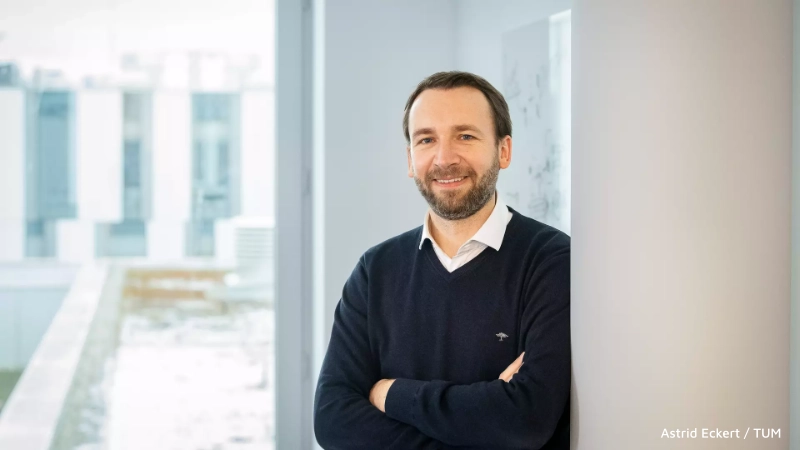
Please take a look at the excellent interview with the director of relA Prof. Günnemann at TUM. The interview, titled “The reliability of AI will play a decisive role in Germany”, emphasizes the transformative focus that our school's main topic plays in technology.
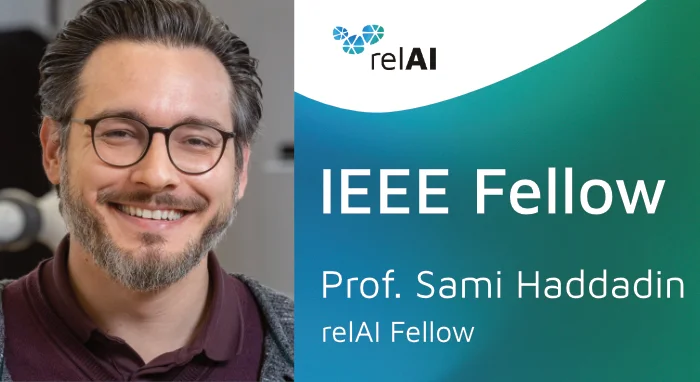
We are thrilled to congratulate relAI fellow Prof. Sami Haddadin for his elevation to IEEE fellow. This is the highest membership degree of IEEE, the world's largest technical professional organization dedicated to advancing technology for the benefit of humanity.
This prestigious distinction was awarded to the director of the TUM Munich Institute of Robotics and Machine Intelligence (MIRMI) “for his contributions to robot safety, tactile robots, and interaction control”.
Our Congratulations!
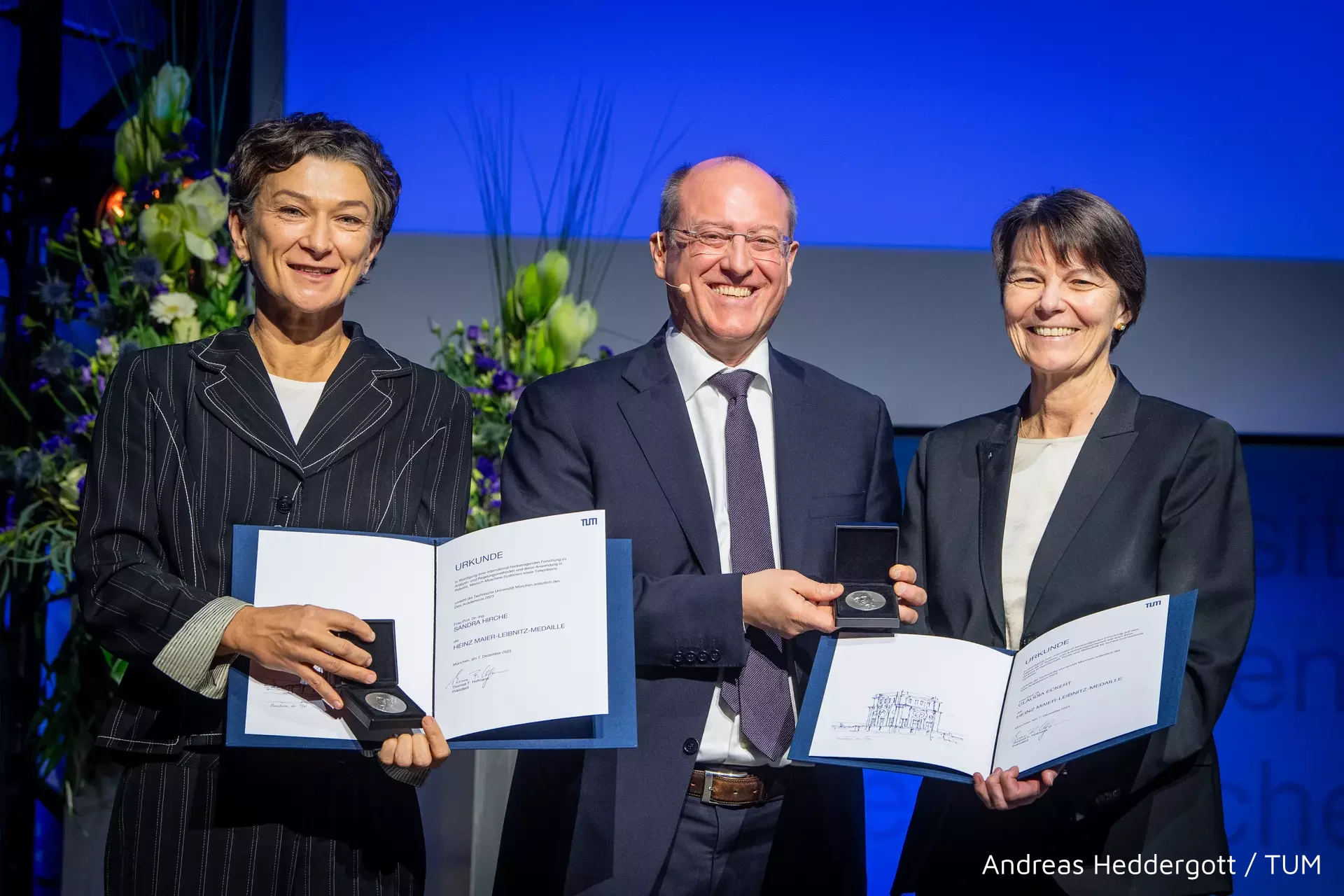
Congratulations to relAI fellows Prof. Sandra Hirche and Prof. Claudia Eckert on receiving the prestigious 2023 Heinz Maier-Leibnitz Medals from TUM.
We are excited that the TUM honors the exceptional achievements of Prof. Dr. Claudia Eckert and Prof. Dr.-Ing. Sandra Hirche with the 2023 Heinz Maier-Leibnitz Medals. This annual award of the TUM was presented to the relAI fellows at the recent Dies Academicus in December 2023.
In the Laudati, Senior Vice President Prof. Gerhard Kramer acknowledged the outstanding contributions of Prof. Dr. Claudia Eckert "at her chair at TUM and as head of the Fraunhofer Institute for Applied and Integrated Security AISEC with the protection of IT systems against hacker attacks." Prof. Dr.-Ing. Sandra Hirche was recognized for her "groundbreaking work" in control engineering and systems theory.
A big congratulations to them both! These well-deserved awards are a testament to their dedication and impact in their respective fields, particularly to reliable AI.
Please find more information about this prestigious price from TUM: https://www.tum.de/en/about-tum/facts-and-figures/awards-and-honors/awards-presented-by-the-technical-university-of-munich/heinz-maier-leibnitz-medal
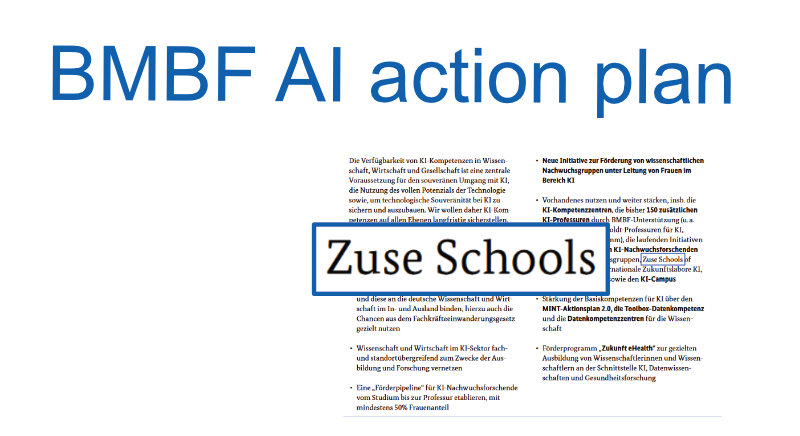
We are honored to announce that the Zuse Schools of Excellence in AI have been featured in the AI action plan of the German Federal Ministry of Education and Research ("BMBF-Aktionsplan Künstliche Intelligenz")!
This strategic plan aims to significantly advance AI research, development, and application in Germany. It emphasizes strengthening Germany's position in the global AI landscape. This is done by enhancing research infrastructure and transfer, facilitating AI integration into various sectors such as healthcare, fostering a dialogue on the societal and ethical implications of AI and ensuring AI competencies at all levels in the long term. Notably, the BMBF has committed over 1.6 billion Euros to this AI action plan.
Being explicitly named in this influential plan highlights the dedication of the three Zuse Schools including relAI, to fostering ethical, reliable AI innovations and preparing the next generation of AI leaders.
A huge thank you to our supporters, partners, fellows, and students for making this milestone possible!
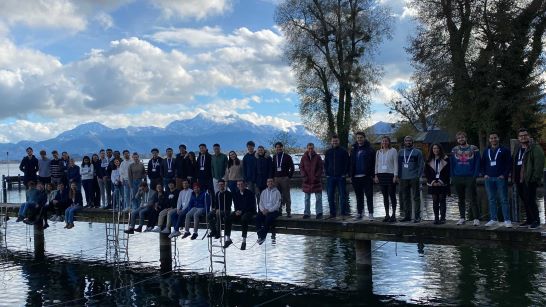
Day 2 of the 2023 relAI retreat combined inspiring keynote talks by relAI fellows Sandra Hirche (“Learning Controls with Guarantees”) and Johannes Maly (“Implicit regularization of training algorithms and resource efficiency”) with more sessions of lightning talks and two rounds of group discussions, a new activity introduced for the first time during this year's retreat.
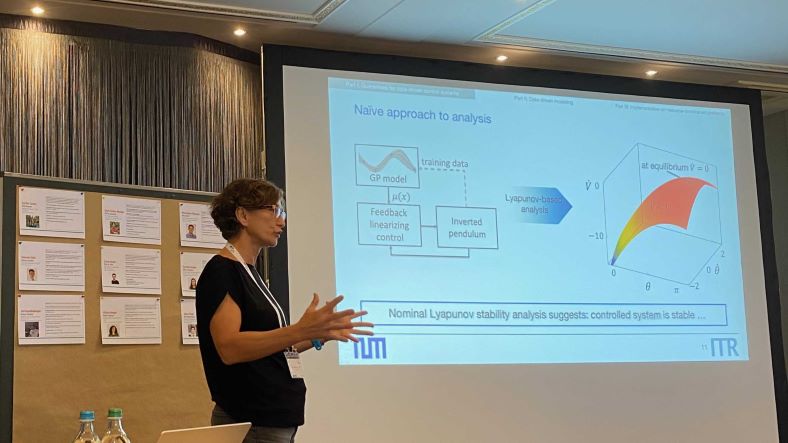
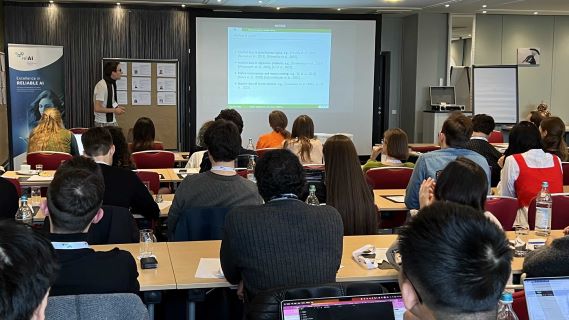
The first group discussion session dealt with research topics suggested by fellows and students. The presentations of the discussions’ outcomes showed the intensity and depth with which these discussions had been conducted. The second round of discussions focused on relAI organizational topics such as the relAI Blog and Alumni and were very productive. They were presented on the last day of the retreat with amazing outcomes, including a newly founded student committee to coordinate the new relAI blog, and a student representative responsible for building a relAI alumni network. The election of new student representatives and IDP discussion sessions rounded off two very successful days.
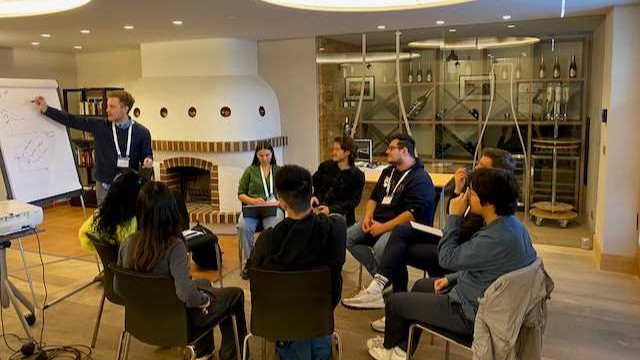
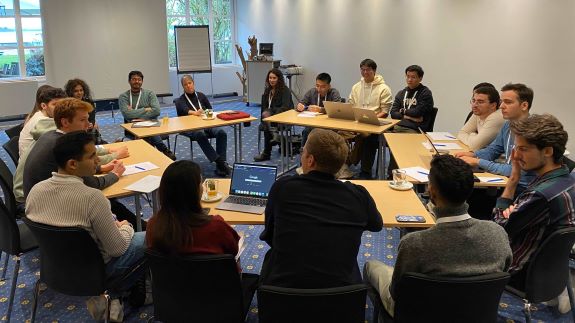
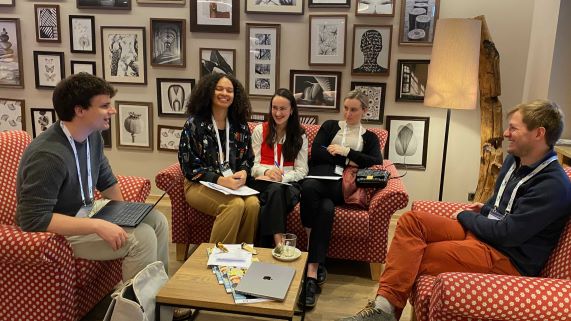
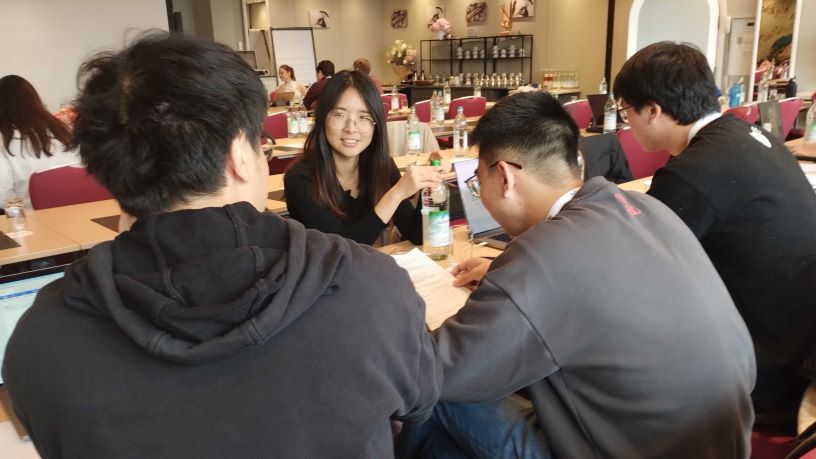
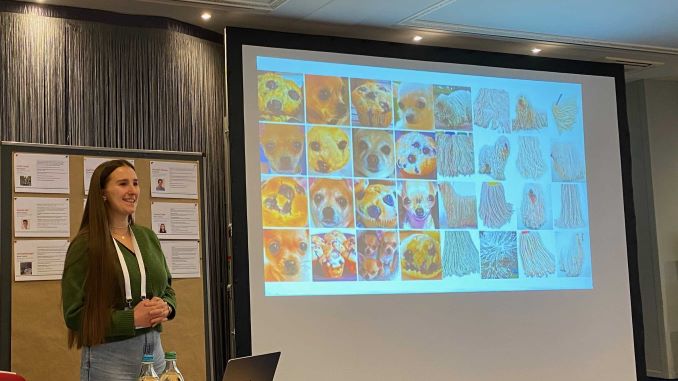
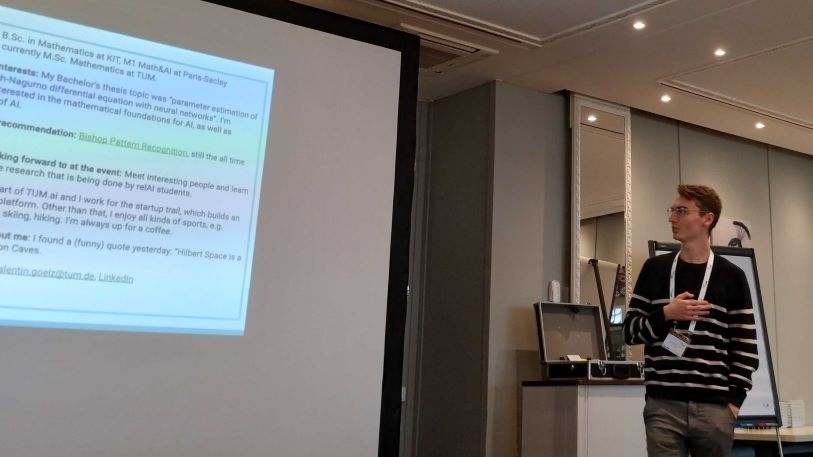
Although the weather was very much November-like, everyone enjoyed the talks, fruitful discussions and social activities in this great location. The preparations for the next retreat have already started; it will take place in summer 2024 and we’re looking forward to gathering the relAI family again.
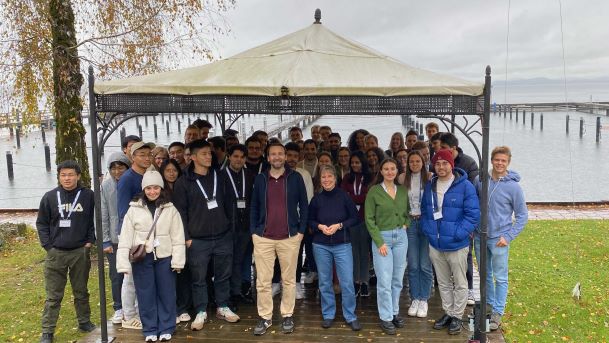
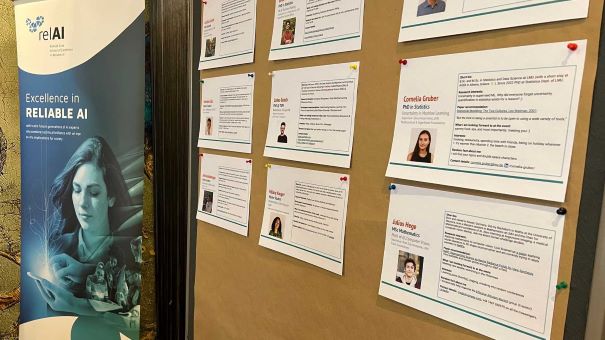
From November 16th to November 18th, the relAI family gathered at the Yachthotel Chiemsee for its second retreat.
The retreat started on the 16th with a warm opening by our two directors, Stephan Günnemann and Gitta Kutyniok. Afterwards, the relAI fellow Debarghya Ghoshdastidar gave the first keynote talk about “Over-parameterization and Over-fitting: Myths, theory and tools” followed by a very lively discussion around this topic.
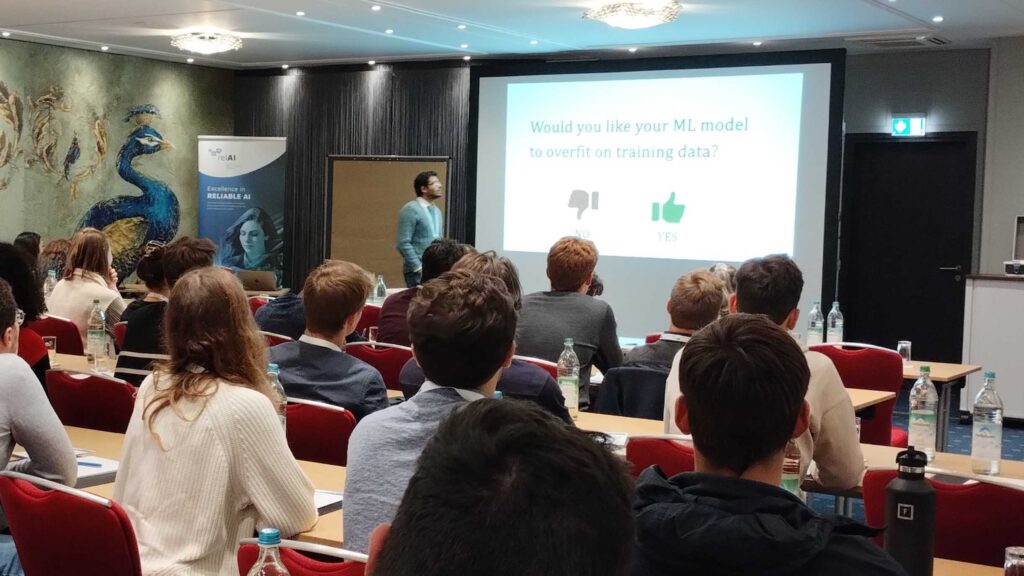
Day One´s program concluded with a highlight of this year's retreat, a round of lightning talks, where each of our students introduced themselves and their research focus in one minute. Spread over the two days of the retreat, the one minute presentations together with the social interactions resulted in everyone having a very good idea about what interests all the other students have.
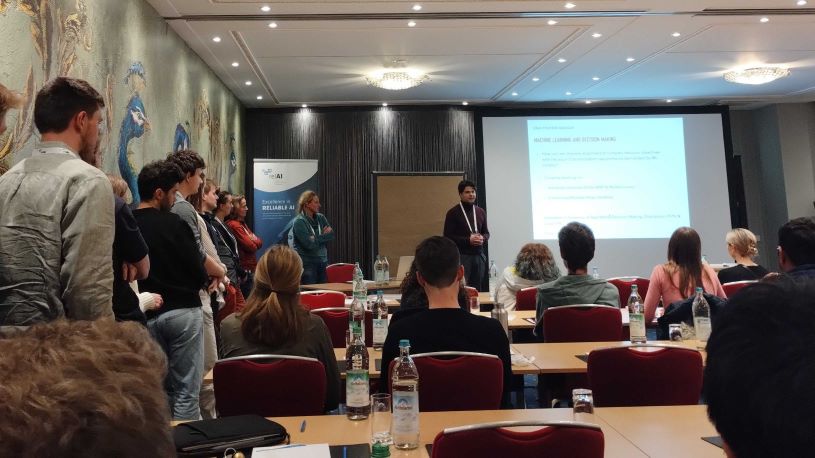
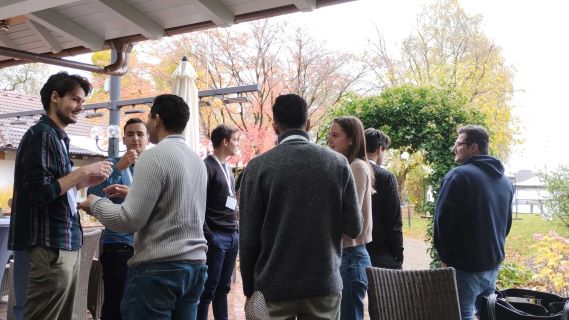
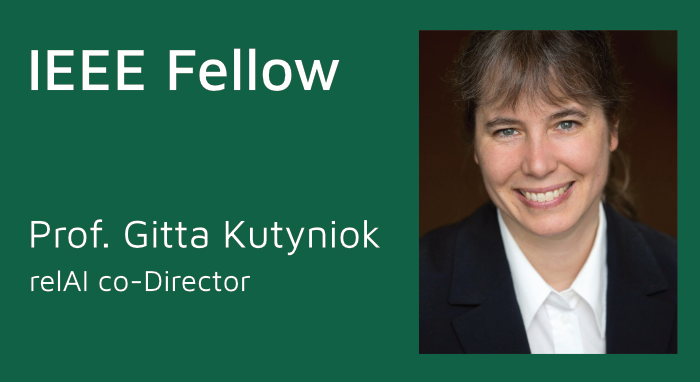
Congratulations to our relAI director Gitta Kutyniok!
The world's largest technical professional organization dedicated to advancing technology for the benefit of humanity IEEE has selected Gitta Kutyniok for the elevation to IEEE Fellow, the highest grade of membership in IEEE. Less than 0.1% of voting members are selected for this member grade elevation each year.
The IEEE Fellow Committee recognized her achievements with the following statement: “for contributions to the mathematical theory of artificial intelligence in signal processing and communication”